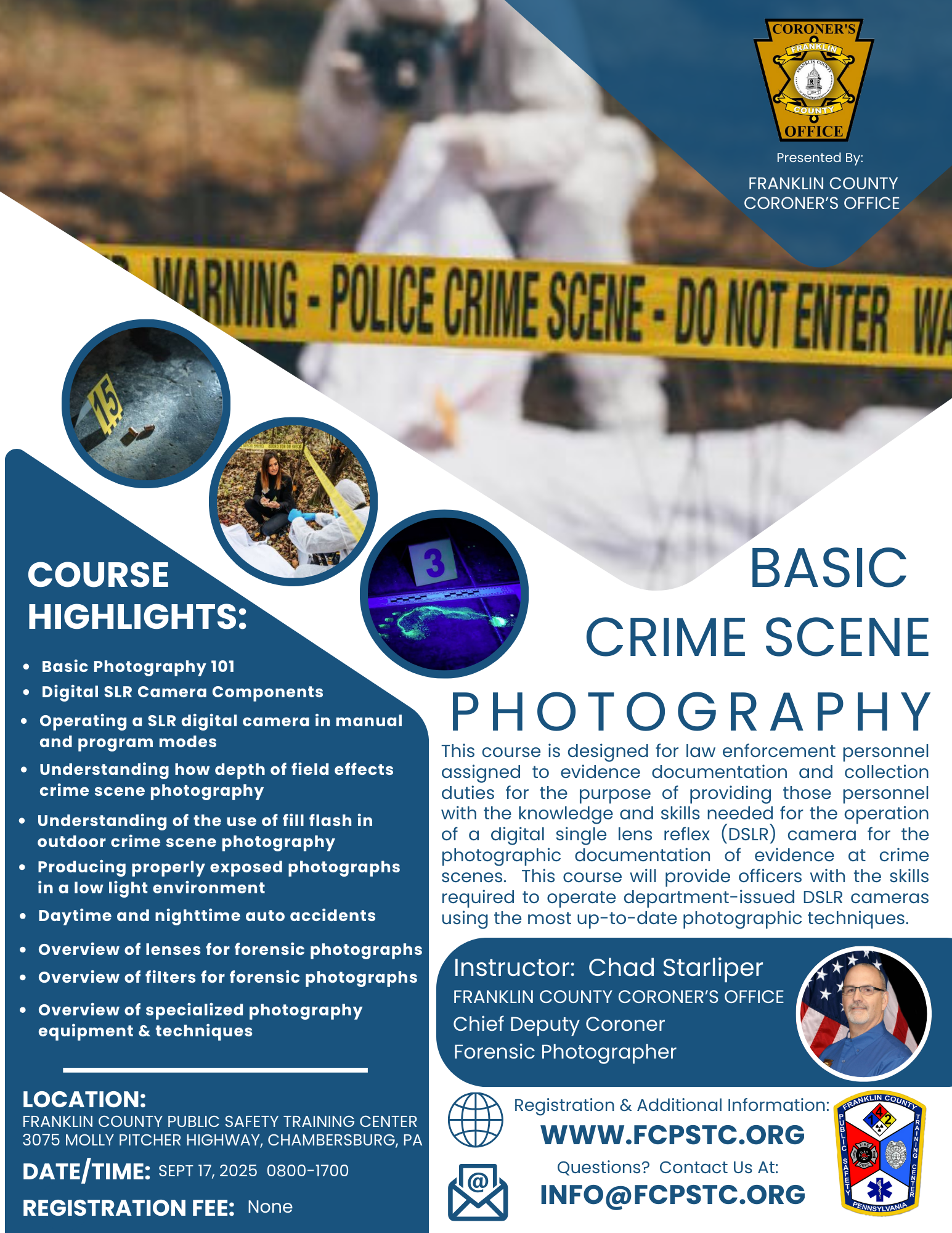Franklin County Public Safety Training Center
3075 Molly Pitcher Highway
Chambersburg, PA 17202
This one-day course provides classroom and hands-on training for law enforcement in the basic principles of photography as it relates to crime scenes, death investigations, and evidence documentation. This course is structured for the inexperienced, entry-level photographer, as well as the moderately-experienced photographer with some training. Attendees will become familiar with camera functions and handling, photographic techniques to include proper exposure, depth-of-field, and motion control, flash photography, and how to properly photograph scenes under low-light conditions. Attendees will learn proper photographic documentation for both indoor and outdoor crime scenes and daytime and nighttime automobile accidents. UV/IR and Alternative Light Source photography will be introduced.
Topics to be discussed in this course include the following:
- Basic Digital Photography 101
- Digital SLR Camera Components
- Operating a SLR digital camera in manual and program modes
- Understanding how depth of field effects crime scene photography
- Understanding of the use of fill flash in outdoor crime scene photography
- Producing properly exposed photographs in a low light environment
- Overview of lenses for forensic photographs
- Overview of filters for forensic photographs
- Auto accident nighttime and daytime photography
- Legal aspects of crime scene photography
- Overview of specialized photography equipment & techniques
LEARNING OBJECTIVES:
The goals of this course are to provide attendees with a comprehensive overview of crime scene photography, photographic equipment used to document crime scenes, and the roles and responsibilities of the crime scene photographer. Attendees will be able to understand the basic operational functions of a digital SLR camera and how to use the camera to properly document crime scenes. Attendees will learn how to use the camera in both normal and low-light environments to take examination quality photos of evidence. Attendees will also gain an understanding of how specialized photographic equipment can be used to document evidence that is not visible to the naked eye and will be exposed to a variety of evidence collection scenarios likely to be encountered during “real world” investigations. Attendees will also learn best practices, based on national standards, for protecting the integrity of digital evidence photographs and become familiarized with landmark court cases related to the use of digital evidence photographs in court.

